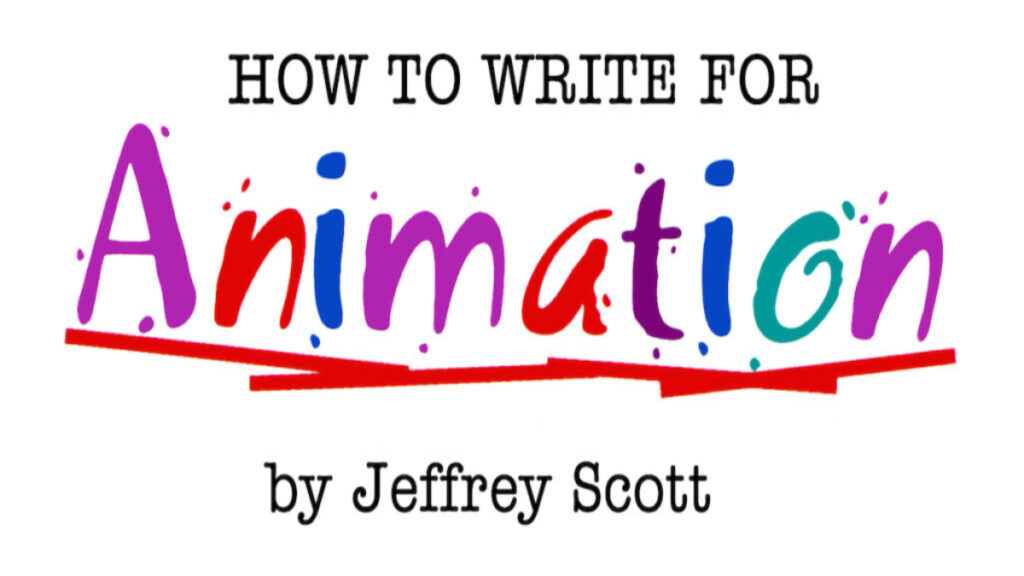
Let me offer a few pieces of advice that may help you live long and prosper in the animation business.
It would be foolish to think you could become a good animation writer without first understanding a little bit about creativity, especially considering cartoon writing is one of the most creative forms of writing there is. Fortunately, creativity is not as ethereal as some might lead you to believe.
The reason most people think creativity is such a mysterious thing is probably because “authorities” have written so much on the subject that it begins to look pretty complex and unfathomable—left-brain versus right-brain, the unconscious, chemical reactions, gifts from god. The list goes on and on. There are great gobs of confusing theories on the subject of creativity and its origin. Some psychiatrists have suggested that creativity and madness are similar, and that to be really creative you must be somewhat loony tunes! Sounds to me like they’ve been watching too many cartoons—or maybe not enough!
If you’ve bought into any of this gobbledygook then you may have already begun to shackle your creativity. Why? Because, by simple observation, creativity can be seen to be totally unlimited. Any conclusion you draw about creativity—where it comes from, why you have it, why you don’t, what drug makes it better, which one makes it worse— becomes a creative limitation. Don’t think about creativity, just create.
Here’s some simple examples. I’ve known writers who think they can only be creative in the early morning. I’ve spoken to others who think they have to have a drink to loosen them up creatively. I’ve heard of some who believe they have to wait for moments of creative inspiration, without which they just can’t write.
Although these considerations may work for these writers, I never agreed with any of them. I simply chose to believe that I could create at any time, on any subject. That’s what I’ve been practicing my entire career. So you’re free to believe you can only get good ideas after deep breathing and yoga, or after sex, or whenever, but you’re only going to limit your creativity.
Creativity begins with getting an idea, and there are an infinity of ideas. All of us are inherently creative. We get new and unique ideas all the time. The writer’s job is to communicate ideas in such a way that they maintain the interest of the reader or viewer.
Interestingly, the most common question I’m asked as an animation writer is, “Where do you get all your ideas?” My first response is usually the line I gave to Gonzo in the “Romancing the Weirdo” episode of Jim Henson’s Muppet Babies:
Seriously, I get my ideas from the same places everyone else does—travels, social encounters, day-to-day experiences, movies, TV, books, newspapers, dreams, past lives. That’s right. Ideas can come from anywhere, even past lives. Whether or not you believe in the phenomenon is not the issue. What’s important as a writer is to be willing to experience anything. Because if you can’t confront an idea I can guarantee you that you won’t be able to write about it.
©Jeffrey Scott, All Rights Reserved
(Jeffrey Scott has written over 700 animated and live-action TV and film scripts for Sony, Warner Bros., Disney, Marvel, Universal, Paramount, Columbia, Big Animation, Hanna-Barbera and others. His writing has been honoured with three Emmys and the Humanitas Prize. He is author of the acclaimed book, How to Write for Animation. To work with Jeffrey visit his website at www.JeffreyScott.tv.)
Read other articles from this series:
#1 The difference between live-action and animation writing
#3 It all begins with a premise
#4 The secret to developing your story
#5 Finding the scenes that Must be there
#7 How to easily transform your outline into script
#8 A brief introduction to script writing
#9 How long should your scenes be?
#10 How to (and NOT to) edit your writing
#13 The importance of communication
#17 Assuming the point of view of your audience
#23 The screenwriter’s bookshelf
#25 Creating an animated series
#27 Developing your series concept
#28 Real vs. Cartoonish characters
#29 Making your series more sellable
#30 The basic elements of an animated series
#31 The four vital elements of an animated series bible
#34 How to sell your script or series
#35 How to break into animation writing without an agent
(If you are an Anime fan and love Anime like Demon Slayer, Spy X Family, Hunter X Hunter, Tokyo Revengers, Dan Da Dan and Slime, Buy your favourite Anime merchandise on AnimeOriginals.com.)

